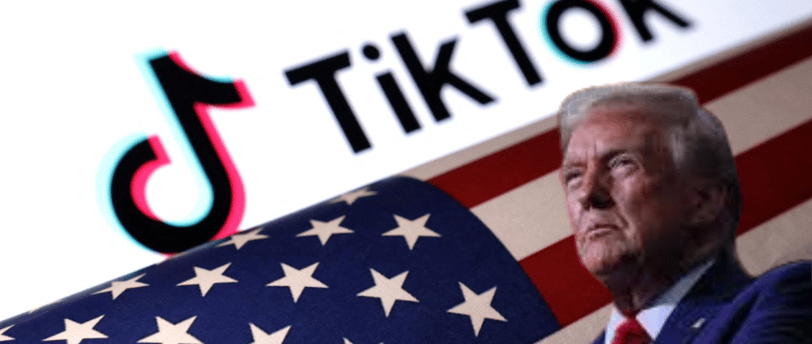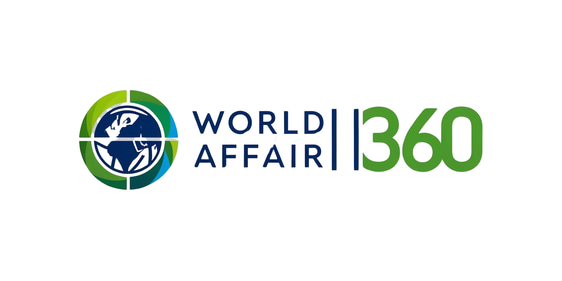TikTok Ban Live Updates: App Shuts Down in US - But Trump Could Restore It
The recent ban on TikTok in the United States has sparked significant debate over data privacy and national security concerns, especially due to the app’s connections with its Chinese parent company, ByteDance. The ban followed years of escalating fears, beginning with former President Trump’s accusations that TikTok posed a national security threat. Despite legal battles and challenges from TikTok, including attempts to force a sale of its U.S. operations, the ban became a reality. The Biden administration continued to weigh national security against the platform's widespread popularity, leading to a final decision to shut it down. This ban has deeply impacted TikTok's creators and users, many of whom rely on the platform for income, engagement, and community building. Influencers and businesses have been forced to seek alternative platforms, with apps like Instagram Reels and YouTube Shorts gaining traction. The disruption has altered the social media landscape and shifted marketing strategies for businesses. Amid this turmoil, there has been speculation about Trump’s role in potentially restoring TikTok, given his history of opposition to the ban and his political influence. He could advocate for legislative changes or executive actions that might reverse the shutdown, aligning his efforts with public support for the platform’s return. The future of TikTok in the U.S. will depend on navigating complex regulatory environments and addressing concerns over data privacy while adapting to shifting user preferences.
GEO-POLITICS


The ban on TikTok in the United States marks a significant turn in the discourse surrounding data privacy and national security issues linked to social media platforms. The saga began with growing apprehensions among government officials regarding the potential misuse of user data collected by TikTok, particularly due to its ties to China through its parent company, ByteDance. Concerns intensified around 2020 when former President Donald Trump accused the platform of posing national security threats, highlighting fears that user data could be accessed by the Chinese government.
The timeline of events progressed with the introduction of executive orders aimed at prohibiting TikTok’s operations within the U.S. Following these executive orders, various legal battles ensued, with TikTok challenging the suggested bans in federal courts, claiming that such actions denied the rights of its American user base and employees. The situation escalated when Trump's administration proposed forcing the sale of TikTok’s American operations to a U.S.-based company, aimed at mitigating these security concerns while keeping the platform operational in the country.
As time went on, discussions continued within the Biden administration regarding the TikTok ban, with officials balancing national security interests against the potential consequences of limiting a widely used platform that provides entertainment and social interaction for millions of Americans. Ultimately, the decision to fully ban TikTok reflected a culmination of political pressure, public opinion, and regulatory considerations. The implications of this ban are far-reaching, affecting not only users who relied on the app for creative expression but also setting a precedent for how future social media platforms may operate under U.S. jurisdiction. Various stakeholders, from government officials to TikTok representatives, played pivotal roles in the unfolding events, emphasizing the complexity of managing technological advancements in a rapidly evolving geopolitical climate.
Impact on Users and Creators
The recent ban on TikTok in the United States has created significant repercussions for its vast user base and content creators. As a platform known for its short-form video content, TikTok has cultivated a vibrant community comprising millions of influencers, businesses, and everyday users who rely on it for entertainment, engagement, and income generation. The abrupt shutdown of the app has resulted in immediate challenges for these groups, particularly in terms of income loss. Many creators have built their careers around TikTok, monetizing their content through brand partnerships, sponsorships, and ad revenue. The elimination of this revenue stream could lead to financial instability for a substantial number of individuals who have dedicated their time and efforts to cultivating their presence on the platform.
Moreover, audience engagement is another critical aspect that has been severely impacted. Influencers often foster strong connections with their followers through TikTok's interactive features. The loss of this platform means creators may struggle to maintain their community and audience reach, jeopardizing their ability to promote products or services and connect with fans. This disruption also affects businesses that have utilized TikTok for marketing and brand awareness, forcing them to reconsider their social media strategies.
As users and creators seek alternative platforms, social media dynamics could shift in notable ways. Similar apps such as Instagram Reels, YouTube Shorts, and Snapchat have already started to attract former TikTok enthusiasts. While these platforms offer some comparable features, they may not provide the same level of creativity or community that TikTok was known for. This migration could change not only the content landscape but also influence brand marketing strategies as businesses adapt to these new environments. Ultimately, the TikTok ban represents a significant turning point in social media, compelling both users and creators to evolve and explore new avenues for engagement and expression.
Trump’s Potential Role in Restoration
Former President Donald Trump’s involvement with TikTok has been a subject of considerable interest and speculation since the app faced potential bans in the United States. During his presidency, Trump took decisive action against multiple Chinese-owned apps, citing national security concerns. His administration's narrative presented TikTok as a risk due to potential data harvesting and privacy violations, prompting legislative and executive strategies aimed at curtailing its operations in the U.S. This history sets the stage for Trump’s possible intervention in revitalizing the app amid current shutdowns.
As a prominent political figure, Trump's influence remains substantial among his supporters and within Republican circles. His vocal opposition to the ban could sway public opinion, particularly from those who view TikTok as a valuable platform for creativity and communication. The potential restoration of TikTok could also align with Trump's broader political strategy, particularly as he seeks to reaffirm his relevance in American politics. Leveraging his popularity, he might advocate for legislation favorable to TikTok, framing it as a matter of free speech and market competition.
Legally, Trump could explore several avenues to restore TikTok. One approach may involve lobbying for regulatory changes or executive orders countering previous bans. Moreover, Trump's relationship with key stakeholders in Congress can facilitate discussions, potentially fostering a bipartisan effort to safeguard TikTok's operations. Furthermore, as legal challenges emerge surrounding the initial ban, Trump's actions could inspire similar initiatives from like-minded politicians seeking to balance national security with economic and social implications.
Public sentiment surrounding TikTok's ban is mixed, with considerable movements rallying for its return. Grassroots campaigns and social media advocacy emphasize TikTok's role in digital commerce, brand marketing, and cultural expression. In this context, Trump’s potential involvement could reflect and amplify these public sentiments, positioning him as an advocate for both technology and individual rights. Addressing these sentiments could be pivotal as he navigates the modern political landscape.
The Future of TikTok in the U.S.
The recent ban of TikTok in the United States has left many wondering what the future holds for the popular social media app. One of the critical factors influencing its potential return is the political landscape. Former President Donald Trump has hinted at the possibility of restoring the app, should he return to office. This scenario could lead to a fluctuating regulatory environment surrounding TikTok and its operations in the U.S. market.
In assessing the likelihood of TikTok being reinstated, it is important to consider the broader context of regulatory frameworks. With growing concerns over data privacy and cybersecurity, there may be significant pressure on the U.S. government to impose stricter regulations on foreign-owned applications. This could lead to a stringent vetting process for apps like TikTok, potentially transforming the way such platforms operate and providing a framework designed to address security issues while balancing user engagement.
Moreover, examining how other countries manage similar concerns offers insight into TikTok's possible global operations. For instance, several countries have enacted or considered legislation aimed at scrutinizing the data practices of technology companies, particularly those based outside their borders. The successful navigation of such regulatory challenges in other regions may provide a roadmap for TikTok, allowing it to adapt its operational strategies and reinforce data privacy protocols to gain public and governmental trust.
Furthermore, the evolving landscape of social media suggests that user behavior and preferences are constantly shifting. If TikTok aims to make a comeback, it must understand the underlying factors that influence user retention and engagement. By addressing security concerns directly and adapting to new regulatory challenges, TikTok may find a way to re-establish itself in the U.S. market, though this will require a concerted effort to evolve amidst a complex digital ecosystem.
